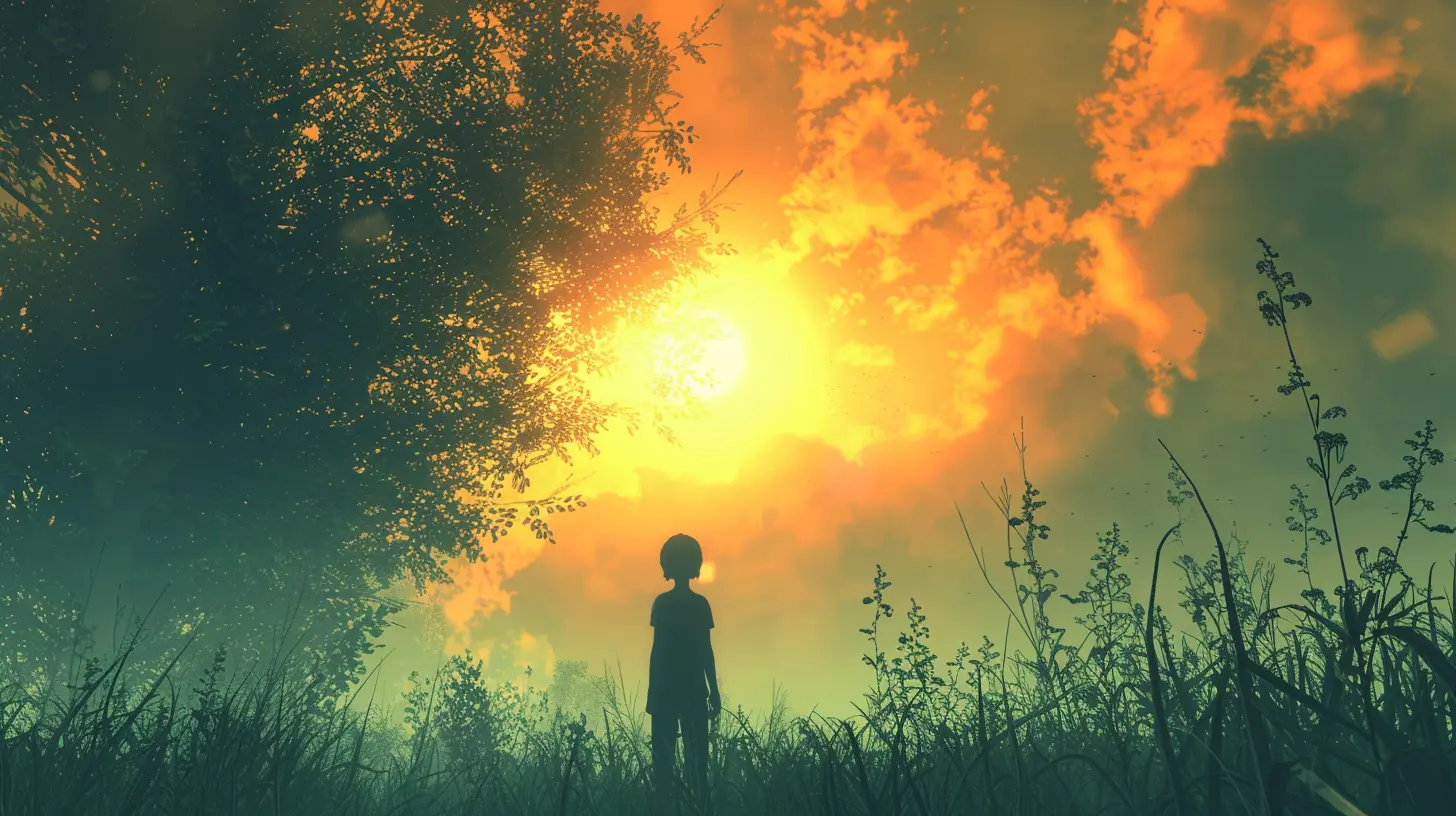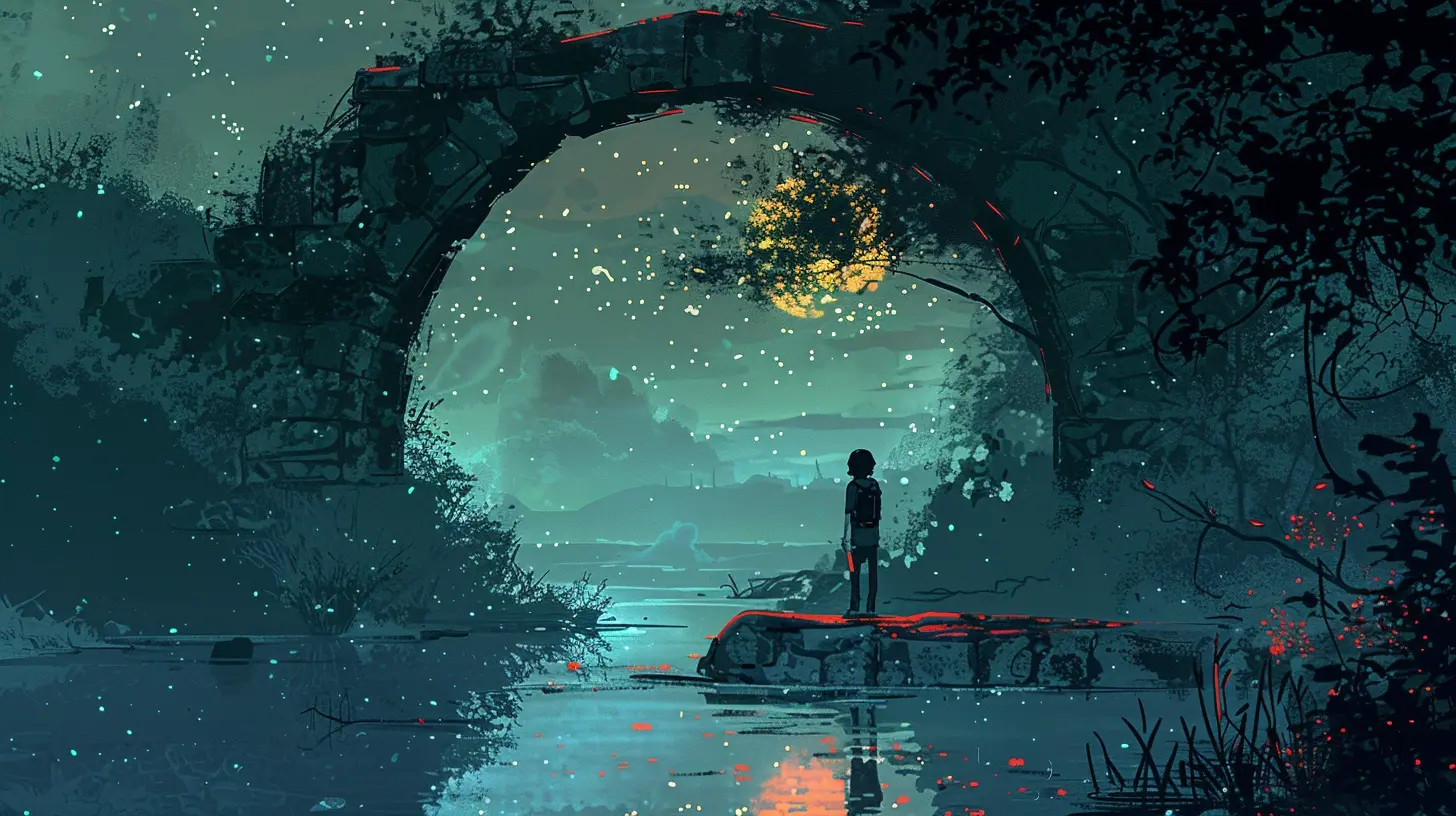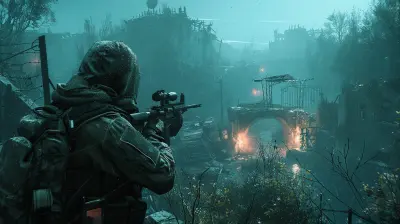31 March 2025
If there’s one thing video games have the power to do, it’s to tell stories that resonate on a deeply personal level. While big-budget titles often focus on explosive action and sprawling worlds, indie games are where things tend to get a whole lot more introspective and heartfelt. These smaller, deeply creative projects often tackle themes that big studios shy away from, like identity and self-discovery.
Let’s be real: at some point in life, we’ve all found ourselves asking, “Who am I, really?” It’s one of those universal questions that doesn’t come with a straight answer. But when a game dives into that theme, it has this magical way of helping us process our own emotions and experiences. So, grab your favorite drink, put on some cozy socks, and let’s take a look at some incredible indie games that aren’t just fun to play but also encourage us to peel back the layers of who we are. 
Why Indie Games Shine When Exploring Identity
Before diving into the list, it’s worth pausing to appreciate why indie games are so uniquely equipped to handle themes of identity and self-discovery. Unlike giant AAA titles, indie devs often work with smaller budgets, smaller teams, and complete creative freedom. They’re not tied to the need for profit margins or appealing to every single gamer on the planet. This freedom allows them to take risks and tell stories that are raw, personal, and unapologetically authentic.Many indie developers create games rooted in their own experiences—reflecting struggles with mental health, grappling with societal expectations, or just navigating the messy journey of figuring out who they are. These insights lead to experiences that feel less like playing a game and more like stepping into someone’s shoes for a while. 
Indie Games That Nail Themes of Identity

1. Celeste
First on the list is Celeste, a platformer that’s as challenging as it is touching. At first glance, you might think it’s just a game about climbing a mountain (which, don’t get me wrong, it is). But beneath the pixelated surface, Celeste is really about Madeline, the protagonist, coming to terms with her inner struggles.Throughout the game, Madeline faces a part of herself called the "dark side," a literal manifestation of self-doubt, anxiety, and fear. You’re not just fighting tough platforming stages—you’re battling your own inner demons. And when the game hits you with moments of personal growth, it feels like a genuine accomplishment, not just another checkpoint.
The core message of Celeste? You don’t have to completely conquer your struggles to move forward. Sometimes, it’s about learning to live with those parts of yourself. And let’s be honest—how many of us need to hear that? 
2. Undertale
Undertale is more than just a quirky RPG; it’s a thought-provoking meditation on morality, choices, and what makes us who we are. In this game, you play as a human who falls into the Underground, a world inhabited by monsters. What makes Undertale so special is the way it allows players to decide their path. Will you fight your way through or choose mercy for every foe you encounter?How you play directly affects the story and, in a way, defines your character. Are you compassionate? Ruthless? Somewhere in between? By the time you’re done with Undertale, you’re not just questioning your in-game identity—you might be questioning your real-life values too.
Toby Fox, the game’s developer, artfully weaves humor and emotional gut punches together, making every interaction feel like it has weight. Few games make you so hyper-aware of your own actions.
3. Night in the Woods
Talk about a game that gets real. Night in the Woods is an indie darling about Mae, a college dropout who returns to her small, economically failing hometown. On the surface, it seems like a story about reconnecting with old friends and solving small-town mysteries. But underneath, it’s a poignant exploration of mental health, societal pressures, and searching for purpose.Mae struggles with finding her place in the world. She questions her identity as a young adult who’s “supposed” to have things figured out by now but doesn’t. Sound familiar? It probably hits close to home because that’s a journey so many of us are on.
The game’s dialogue is sharp, funny, and heartbreakingly honest. It doesn’t shy away from showing the messy parts of growing up and trying to find yourself—and that’s what makes it hit so hard.
4. GRIS
From the moment you start GRIS, it’s clear this isn’t your typical game. It’s a stunning, hand-painted journey that feels more like an interactive piece of art than anything else. But beneath its beauty lies a story of pain, healing, and self-discovery.You play as a young woman navigating a world where color has been drained after experiencing grief. As you progress, the world regains its vibrancy, symbolizing the protagonist’s emotional recovery. It’s subtle but incredibly powerful.
The lack of dialogue in GRIS doesn’t make it any less impactful. In fact, the absence of words makes its themes of identity and healing feel universal. It’s the kind of game that’ll have you reflecting on your own experiences long after the credits roll.
5. Spiritfarer
If you’re looking for a game that offers an emotional gut punch while packing in plenty of warm hugs, say hello to Spiritfarer. In this cozy management sim (yes, those exist), you play as Stella, whose job is to ferry spirits across to the afterlife. Along the way, you bond with these spirits, learn about their lives, and help them find closure.While the game touches on themes of death and loss, it’s also a celebration of identity. Each spirit has a unique past, personality, and series of regrets or triumphs. Helping them confront and accept who they were in life also inspires Stella to reflect on her own journey.
It’s a game that asks some big questions: Who are we at the end of our lives? What do we leave behind? And perhaps most importantly, are we comfortable with the person we’ve been? Spiritfarer doesn’t shy away from these hard topics, making it one of the most human games out there.
6. Her Story
If you’re into mystery games with a twist, Her Story is a must-play. This game revolves around sorting through hours of police interview footage to piece together a story. You’re not given much to work with, which makes every discovery feel like an “aha!” moment.But what starts as a murder mystery soon becomes a dive into identity and memory. Who is the woman in the footage? Why does her story seem to shift depending on the clip you watch? The more you uncover, the more you’re forced to question not just her identity but how much of our own lives are shaped by subjective experiences.
By the end, you’re left wondering if identity is as stable as we like to think. And honestly? That question lingers long after you’ve closed the game.
Why These Games Matter
There’s something truly special about indie games that dive into themes of identity and self-discovery. Unlike mass-market titles, these games act like mirrors, reflecting pieces of ourselves we don’t always acknowledge.Whether it’s battling your inner demons (Celeste), pondering morality (Undertale), or finding your place in the world (Night in the Woods), these games offer more than just entertainment. They’re journeys—tiny, carefully crafted worlds where you can confront what it means to be human.
Final Thoughts
If you’ve been shying away from indie games because they’re not as flashy as the big-name titles, you’re seriously missing out. These gems don’t just tell stories; they invite you to live them, feel them, and maybe even take something away from them.So, if you’re looking for a gaming experience that’s deeper than just hitting high scores or beating bosses, give one of these titles a try. Who knows? You might end up learning more about yourself in the process.



Lexi Vaughn
Indie games are revolutionizing storytelling—embracing our complexities and challenging norms. Dive deep and discover yourself!
April 1, 2025 at 4:46 PM